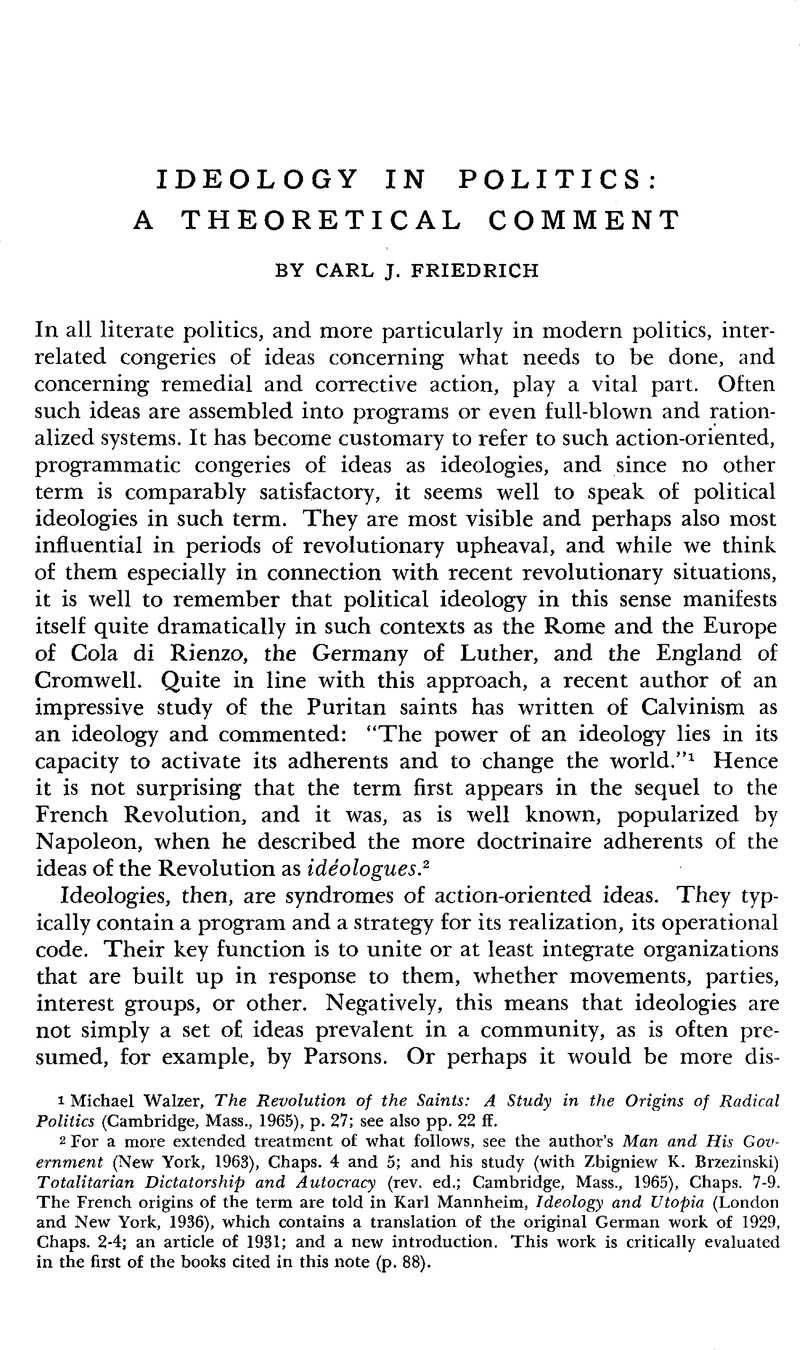Article contents
Ideology in Politics: A Theoretical Comment
Published online by Cambridge University Press: 27 January 2017
Abstract

- Type
- Discussion
- Information
- Copyright
- Copyright © Association for Slavic, East European, and Eurasian Studies. 1965
References
1 Michael, Walzer, The Revolution of the Saints: A Study in the Origins of Radical Politics (Cambridge, Mass., 1965), p. 27 Google Scholar; see also pp. 22 ft.
2 For a more extended treatment of what follows, see the author's Man and His Government (New York, 1963), Chaps. 4 and 5; and his study (with Zbigniew K. Brzezinski) Totalitarian Dictatorship and Autocracy (rev. ed.; Cambridge, Mass., 1965), Chaps. 7-9. The French origins of the term are told in Karl, Mannheim, Ideology and Utopia (London and New York, 1936)Google Scholar, which contains a translation of the original German work of 1929, Chaps. 2-4; an article of 1931; and a new introduction. This work is critically evaluated in the first of the books cited in this note (p. 88).
3 See Deutsch, Karl W. and Foltz, William J., eds., Nation-Building (New York, 1963)Google Scholar, passim (the volume contains a brief statement by myself entitled “Nation-Building?” as well as contributions by Rupert Emerson and others on the point discussed in the text). See also Rupert, Emerson, From Empire to Nation (Cambridge, Mass., 1960)Google Scholar.
4 Emerson, , From Empire to Nation, pp. 16–17Google Scholar. For a somewhat different view see Robert R. Bowie and associates, “Ideology and Foreign Affairs,” in United States Foreign Policy (prepared under the direction of the Committee on Foreign Relations, United States Senate) (Washington: U.S. Government Printing Office, 1960), II, esp. 1046 ff.
5 The problem here hinted at, that is, the role of values in social science, transcends the scope of this brief comment. My position (developed in Man and His Government, Chap. 2) rejects radically the notion of a value-free social science, which it actually finds to be value-oriented and value-filled, the more so, when this link to values is questioned, as by Max Weber and his followers.
6 Raymond, Aron, Paix et Guerre entre les Nations (Paris, 1962), Chaps. 17 and 18Google Scholar.
- 3
- Cited by




